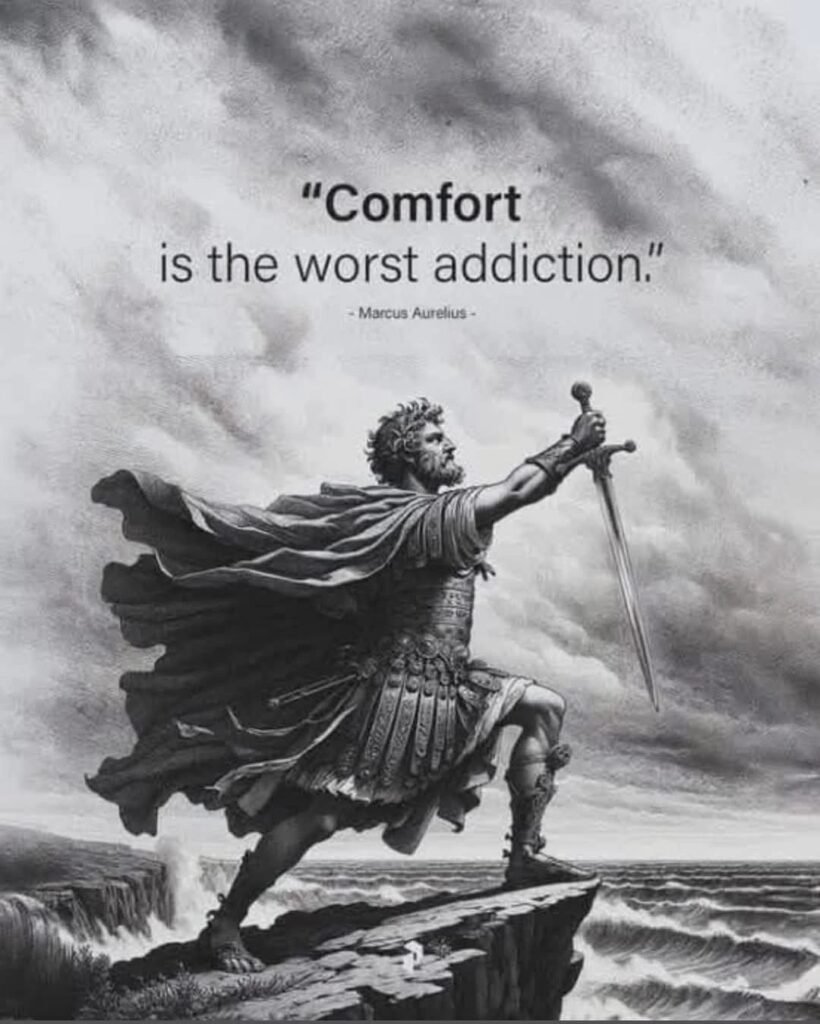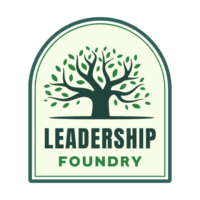
“Comfort is the worst addiction.” These words from Marcus Aurelius, the stoic Roman emperor, resonate deeply in 2025. As a leader or project manager, staying in your comfort zone might feel safe, but it can stifle growth, innovation, and resilience—qualities essential in today’s fast-evolving world. With AI transforming workflows, remote teams demanding adaptability, and economic pressures mounting, clinging to comfort is a luxury you can’t afford. This article explores why comfort is a dangerous trap, how it impacts leadership, and practical steps to break free and thrive.
The Danger of Comfort Zones
Comfort feels good—predictable routines, familiar strategies, and avoiding risks. But Marcus Aurelius saw it as an addiction that weakens resolve. For project managers, this might mean sticking to outdated tools or resisting AI adoption, even as 78% report efficiency gains with automation (Epicflow). Comfort can lead to stagnation, where you miss opportunities to innovate or adapt, ultimately risking project failure. Leaders who stay comfortable often fall behind, as noted in a 2025 McKinsey report on adaptive leadership (McKinsey).
Impact: A study by Harvard Business Review found that leaders who avoid discomfort are 30% less likely to drive transformative change (HBR). In 2025, this could mean losing competitive edge in a tech-driven market.
Why Marcus Aurelius rejected life of confort
Marcus Aurelius himself embodied the rejection of comfort. As emperor, he led Rome through wars and plagues, stepping into chaos with stoic discipline rather than retreating to luxury. Similarly, modern leaders like Satya Nadella of Microsoft embraced discomfort by pivoting to cloud computing, a risky move that paid off with a 20% revenue boost by 2023 (Forbes).
For project managers, consider a leader who adopted hybrid methodologies despite team resistance. As detailed in Top 5 Hybrid Project Management Methodologies for 2025 Success, this shift led to a 15% increase in project delivery speed. Comfort would have kept them with traditional methods, missing this gain.

Why Comfort Hinders Leadership in 2025
In 2025, the stakes are higher. AI demands digital literacy, remote work requires new communication skills, and sustainability pressures call for ethical innovation. Staying comfortable—relying on old habits or avoiding tough decisions—can lead to burnout, as 60% of managers report stress from unchanged routines (McKinsey). It also stifles creativity, a key trait for solving complex project challenges, as highlighted in Vision in Action: How to Translate Big Ideas into Decisions.
Risks:
- Missed innovation opportunities due to fear of change.
- Reduced team morale from stagnant leadership.
- Vulnerability to competitors embracing new strategies.
Strategies to Break the Comfort Addiction
Ready to step out of your comfort zone? Here are five actionable steps to embrace discomfort and grow as a leader:
- Embrace New Challenges: Take on a project outside your expertise, like integrating AI tools. Start with How AI and Automation Are Transforming Project Management in 2025 for guidance.
- Seek Feedback: Ask your team for honest input to identify blind spots. Build trust with How to Build Trust: 5 Practical Steps for New Leaders.
- Learn Continuously: Dedicate time to upskill—try a course on Coursera or read Top 5 Leadership Books to Read in 2025 for Career Growth.
- Practice Resilience: Face setbacks with stoic reflection, as Marcus Aurelius did. Explore Mastering Adaptability: 5 Strategies to Overcome Uncertainty.
- Celebrate Discomfort: Reward yourself for stepping out, reinforcing growth over ease.
These steps align with stoic principles and modern leadership needs, turning discomfort into a strength.

This is how I would conclude!
“Comfort is the worst addiction” is a powerful reminder for leaders in 2025. As project managers and executives, you must reject the safety of the familiar to drive innovation, adapt to change, and inspire your teams. By embracing challenges, seeking feedback, and building resilience, you can turn discomfort into your greatest asset. Start today—step out of your comfort zone and lead with courage. Discover more ways to grow at Leadership Development.


